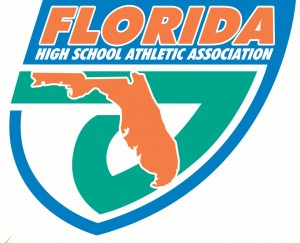More than 40 years ago, the VHSL was dividing the state’s public high schools into three classifications determined by enrollment: Group A, Group AA and Group AAA.
Many of the state’s public schools were skeptical at first, but a majority eventually endorsed the change. Now, for the first time since 1970, reorganization is front and center again. Once again,
the VHSL is hoping to persuade members – especially the state’s largest schools, including those in South Hampton Roads – to go along.
The proposal, though, is drawing concerns from across the state, and area administrators are expressing doubts about whether a six-classification system is a good idea.
Said Mark Harrison, athletic director at Salem High in Virginia Beach, “There are still a lot of unanswered questions.”
The VHSL would create a six-classification system for all sports that would begin in the 2013-14 school year. The current three-classification system would be replaced by six classes, from 1A for the state’s smallest schools to 6A for the largest. The goal, according to the VHSL, is to ensure that schools with similar enrollment are grouped together for postseason tournaments.
South Hampton Roads features some of the state’s largest high schools, and all public high schools in Chesapeake, Norfolk, Portsmouth, Suffolk and Virginia Beach are in Group AAA. While the VHSL’s latest proposal would keep current districts intact, a move to six classifications would split area schools – including some district rivals – into 4A, 5A and 6A for postseason.
Currently, schools are divided into six classifications only for football, which features six state championship tournaments.
Under the six-classification system, teams in other sports also could compete for one of six titles.
“I won’t say everyone has been totally accepting, but they’re starting to see some of the information in question,” Dolan, the VHSL’s co-director of athletics, said during the recent Virginia Interscholastic Athletic Administrators Association conference in Norfolk. “It’s impossible to get a system that will please everyone.”
Surry County athletic director Nat Elliott, whose Group A school competes in the Tri-Rivers District and has an enrollment of fewer than 300 students, is among those supporting the change.
“My thought is that it looks like it’s going to work pretty well for the smaller schools,” Elliott said. “Up to this point we’ve been competing against schools almost twice as big as us, sometimes even bigger. So the six classifications are going to help us compete against schools more equal to ours in numbers. In the postseason it’s going to be a better chance for us and make things equal.”
Elliott said Group A administrators informally voted 70-4 in favor of the six-classification system at a recent state meeting in Richmond.
“What’s going on right now works pretty good for the Group AAA schools, but (six-classifications) is going to be fairer for us,” Elliott said.
Convincing the state’s largest schools – including those in Hampton Roads – to agree will be more difficult.
All four of the regions in Group AAA, comprised of the state’s largest schools, have expressed reservations, according to minutes from a VHSL meeting in late February.
A representative from the Northwestern Region reported concerns over “geography, travel and realignment.”
Both the Eastern Region, which features schools from South Hampton Roads and the Peninsula, and Central Region, with schools from the Richmond area, reported being opposed and sent letters to the VHSL spelling out their objections.
James Roberts, Chesapeake’s school superintendent, wrote in the Eastern Region’s letter that there are concerns about postseason seeding, adding that “the traditions and natural rivalries that currently exist will be significantly impacted.”
Roberts also cited travel and financial concerns.
“Let me assure you that with the current budget conditions,” he wrote, “we are in no shape to add travel expenses.”
In a response, VHSL Executive Director Ken Tilley wrote that “there is time to further refine playoff format, governance, finances, etc. I agree that we need to have things thoroughly planned and presented for feedback before votes are taken.”
Mike McCall, a VHSL spokesman, acknowledged there are concerns with the proposed changes.
But “there is a sense that the proposal is gaining acceptance from the entire state,” McCall wrote last week in an email. “I don’t think anyone thinks that anything new will ever get 100 percent approval without some concerns and that’s why this process has been very open and inclusive; and certainly not rushed.”
Lake Taylor athletic director Bobby Pannenbacker, also the Eastern Region’s football director, wonders what kind of financial impact the changes will have on each city, especially when many are dealing with budget cuts.
Under the six-classification proposal, schools could potentially be matched against a far-flung opponent for postseason.
“Financially, you’re going to increase travel to have these games happen,” Pannenbacker said. “I just don’t see how that’s a benefit at this time.”
Another major concern for the Eastern Region is changing its postseason format for football and basketball – tournaments that bring in money to support all activities.
“If it’s a Group A and Group AA problem then let Group AAA stand alone and do what we’ve always done,” Pannenbacker said. “I’m very confident in what we have and it’s working well. I’m not against change if it benefits everyone else. But I think the way it’s presented right now it’s not going to benefit me.”
Some area administrators think the VHSL is moving too fast.
The VHSL’s Redistricting and Reclassification committee meets Aug. 8 to produce an alignment plan, and after appeals on Sept. 11will present a final proposal to the league’s Executive Committeee.
“I think they need to do the research, get a plan and let the plan be out there for a period of time,” Western Branch athletic director Mark Didawick said. “Then let everybody digest it, understand it and then go to it, versus now where it feels like it’s being force fed to us. I think that’s the problem.”
Still, many athletic directors in the Eastern Region believe the change is coming, whether they like it or not.
“The majority of the league membership is in favor of it and I think it’s going to manifest,” Salem’s Harrison said. “I think a lot of people are in agreement in the Eastern Region that we have to embrace it. We will, but we need to have the hay in the barn before we go and do it. We can’t make it up as we go.”







